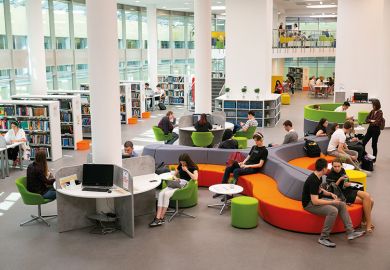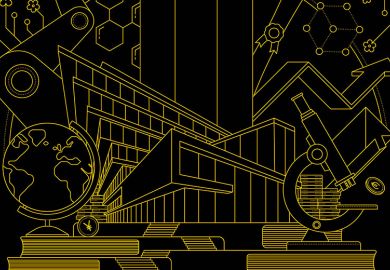Browse the THE Young University Rankings 2020 results
Last year, UNSW Sydney celebrated its 70th anniversary. It marked this milestone by outstripping expectations of its global rankings trajectory and placing in the top 10 of the Times Higher Education list of the best “golden age” universities – an honour we accept with pride.
With roots stretching back to the Sydney Mechanics Institute, which opened in 1843, our evolution to university status in 1949 was born of the needs arising from the Second World War, which had exposed the country’s radical deficiencies in science and technology.
There was a pressing need to train high-quality engineers and technologists in large numbers. The only existing university in New South Wales, the University of Sydney, did not have the capacity for such an influx, nor did its courses match the emerging requirements.
At the time, the development of UNSW was visionary, controversial and a step into uncharted waters, but our founders were undeterred.
They drew inspiration from the Massachusetts Institute of Technology and the Technical University of Berlin, creating a university that elevated teaching and research in science and technology to the tertiary level.
Courses included components on the humanities and business to fulfil UNSW’s commitment to educating the full person. This melding of the technical and the academic has given UNSW a unique culture, reflected in our original motto, Scientia Manu et Mente (“knowledge by hand and mind”), which has since been updated to “knowledge by hand, mind and heart”.
Over the decades we have been guided by this maxim that commits us to seek practical and compassionate solutions to the grand challenges faced by our world.
It is, in my view, what has set UNSW apart over its 70 years.
There is a passion for positive impact underpinning our research and teaching – a true desire to engage with the community in order to understand and anticipate its emerging needs. That passion sits with a pragmatic understanding that the world does not stand still and nor should we. Our goals are steeped in our history of teaching and research excellence but that does not mean we are averse to change.
The UNSW 2025 Strategy, developed in 2015 in close consultation with staff and students, created a framework to guide us through change while staying true to our values.
The strategy has been transformative, allowing us to strive for improvement and ensure students get the skills and experience they need to make a contribution to society and communities in the 21st century.
Many different metrics illustrate the success of UNSW. For example, our graduates are among the highest rated for employer satisfaction in Australia. And, just recently, a record 27 UNSW students were named as “most employable students” in the country’s Top 100 Future Leaders Competition.
Our success on such measures can be attributed to our efforts to prioritise industry engagement and work-integrated learning opportunities. Our new three-term academic calendar, which was introduced last year, will help to ensure this tradition continues, by giving students greater flexibility to undertake internships, volunteering or an overseas experience.
To reinforce our efforts as both a research-intensive and teaching-intensive university, we have encouraged academic specialisation, which includes the introduction of education-focused roles. Some 300 outstanding academics have already taken up these positions.
The global rankings also speak of our research achievements, which are underpinned by a commitment to collaboration.
Last September, UNSW jumped an unprecedented 25 places in the THE World University Rankings and we are now in sight of our goal to be a world top 50 university by 2025.
Our focus on generosity in partnership, where the priority is the common goal not personal achievement, is embedded in UNSW’s culture. We think “collaboration first” because we understand the importance of working with other universities, industry, NGOs and governments if we are to maximise our positive impact.
And we have reaped the rewards through a number of cooperations, including our Torch Innovation Precinct partnership with China, our regional NUW Alliance with the Universities of Newcastle and Wollongong, and our international PluS Alliance with King’s College London and Arizona State University.
It is certainly a golden age for universities in Australia. Despite being home to just 0.3 per cent of the world’s population, our tertiary institutions produce world-class graduates and cutting-edge research. Six of our universities are in the global top 100.
UNSW’s success within this landscape is the result of hard work and vision. It is a product of the era in which our university was born, a time that demanded us to be practical, responsive, inclusive and unwilling to compromise on excellence.
As the Covid-19 pandemic transforms our economy and our society, those attributes are once again invaluable commodities. UNSW is set to see history repeat itself as we answer the call to educate, upskill and lead pioneering research to help revive a post-pandemic Australia.
Ian Jacobs is president and vice-chancellor of UNSW Sydney.
POSTSCRIPT:
Print headline: Solutions with heart
Register to continue
Why register?
- Registration is free and only takes a moment
- Once registered, you can read 3 articles a month
- Sign up for our newsletter
Subscribe
Or subscribe for unlimited access to:
- Unlimited access to news, views, insights & reviews
- Digital editions
- Digital access to THE’s university and college rankings analysis
Already registered or a current subscriber?










